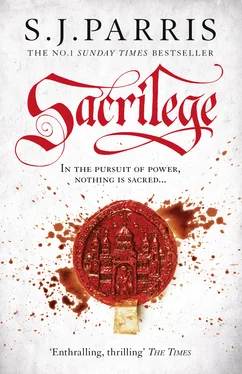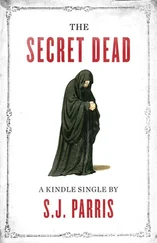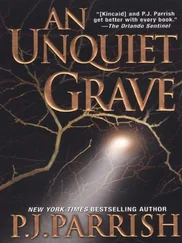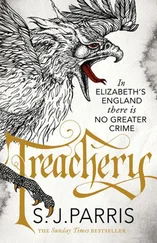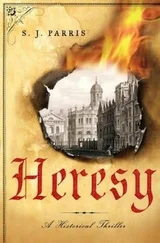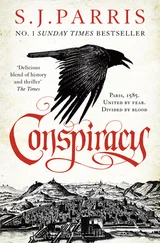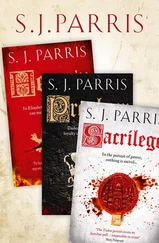‘The King was stricken with remorse, of course,’ Walsingham continued, but I was staring open-mouthed at Sidney.
‘What did you say?’
He looked surprised.
‘They struck him down with a sword.’
‘After that. His brains.’
He made a ghoulish face. ‘An eyewitness account said the knights trod the whites of his brains across the flagstones, all churned up with his blood. Sorry to upset you, Bruno – I forget you have never been to war.’ He meant it as a joke, but his smile faded when he saw that I was not laughing with him. Sophia’s description of her husband’s murder had echoed dimly in my memory, but now it was clear; I had been thinking of the death of Thomas Becket. To cut a man down in the precincts of Canterbury Cathedral in the same manner as its most famous murder victim seemed a grim coincidence. But did it signify any more than that?
‘Are you all right, Bruno?’ Walsingham asked, leaning closer, his sharp eyes missing nothing.
‘Yes, your honour.’ I quickly composed my expression. ‘I was remembering the story.’
He looked at me shrewdly for a moment, then continued:
‘Becket’s body was buried under the floor of the crypt, for fear it would be stolen. Before long, the tales of miracles began and grew in the telling, as martyrs’ legends will, and the monks realised they were sitting on a pot of gold. If they could keep inventing stories of miraculous healing by the power of Saint Thomas’s body, the penitent would keep bringing their offerings.’
‘Until the tomb was destroyed,’ I said, almost in a whisper.
‘Well, that, of course, is the great question.’ Walsingham folded his arms and looked at me expectantly.
‘It was not destroyed?’ I turned to him, confused.
‘The shrine was smashed, certainly, and all its gold plate and jewels taken for the royal treasury,’ he said.
‘And the bones in the tomb were scattered on the ground with every last fragment crushed to dust,’ Sidney added.
‘Then what is the question?’ I asked, looking from one to the other.
‘Whose bones were they?’ Walsingham smiled as he watched my widening eyes.
‘Ah. So the body in the tomb was a substitute?’
‘No one knows for certain. But the legend persists that in 1538 some among the priory monks, knowing the sword was about to fall on the cathedral shrine, hid the real body of Becket to save it from destruction. Since then, custody of his bones has passed down to a small number of guardians, who are preserving it in secret until the great Catholic reconquest that many would like to believe is inevitable, when the shrine can be rebuilt. You understand?’
I nodded slowly.
‘If people believe the holy relics of Becket are still safe, they have a focus for their resistance.’
‘Precisely. The bones of Saint Thomas are said to have miraculous powers. Some claim they have even raised the dead. For those who believe, they can certainly raise the city of Canterbury back to prosperity again.’
‘But you have no idea where the body might be hidden?’
‘We have no idea if the story is even true,’ Walsingham replied, a little curtly, as if I had cast aspersions on his efficiency. ‘But the fact that it exists at all is a problem. Someone with enough cunning could wave around the thigh-bone of an ox, claiming it was Becket’s, and there are plenty who would flock to it if it promised them prosperity and salvation.’
‘And is there a suggestion that this could happen?’
‘There are always rumours,’ he said, with a dismissive wave. ‘Most of my work is sifting through rumour and speculation, hoping to chance upon a grain of truth like a gem in a dungheap. You have seen for yourself how the English love their superstitions and prophecies.’ He gave a quiet snort and resumed his pacing. ‘And Canterbury is significant, in that it is close to the Kent coast. If the city was sympathetic, it could be of great assistance to a Catholic invading force. I have a man there inside the cathedral Chapter, Harry Robinson, who keeps an eye on those we suspect of disloyalty and reports back to me.’
‘But Harry grows old now, Sir Francis, and his eyes and ears are not what they were,’ Sidney persevered. ‘And there are many places he cannot tread, given his position.’ He made his voice persuasive, but Walsingham looked unmoved.
‘This is not a good time to be a foreigner in England, Philip. The poor harvest, the threat of plague – and now there will be more refugees arriving from the Netherlands if the Spanish come down harder on them. Her Majesty would not countenance closing our ports to Protestants fleeing persecution, though there are those on the Privy Council who would argue for it. But the feeling among the common people is that there are just too many incomers now, taking bread and work from Englishmen. Resentment stews until it erupts in violence. Saving your presence, Bruno. But you would be a good deal safer if you stay at Salisbury Court.’
‘Not if the plague comes,’ Sidney argued, with a note of triumph. ‘Besides, you cannot rely on Harry to tell you the truth about the money.’
‘What money?’ I looked at Walsingham.
He sighed. ‘Do you know how much the cathedral foundations of England are worth, Bruno?’ I shook my head. ‘More than thirty-five thousand pounds, put together,’ he continued. ‘And what are they? For the most part, that money does nothing but support small communities of learned men to live in fine houses debating theology among themselves over a good dinner. While the poor parishes all around are served by barely literate priests, and superstition and popery are allowed to flourish. England’s cathedrals have become no better than the monasteries they replaced. With sufficient evidence of mis-spending, it would be quite admissible to close some of them down.’
‘My father-in-law wants to do for the cathedrals what Lord Cromwell in the Queen’s father’s time did for the religious houses,’ Sidney said, with a mischievous glance at Walsingham. ‘To pay for the Dutch war.’
Walsingham looked exasperated, and seemed about to reprimand him when we heard a sharp knock at the door.
‘Yes?’ Walsingham snapped, and his steward put his head apologetically through the smallest possible gap.
‘There is a gentleman at the door says he must see you, sir.’
‘What gentleman?’
‘He will not give his name, but he says you will want to hear his message.’
I was touched to see how Sidney rose instantly, his hand reaching instinctively to his left side, where he would carry his sword if he were more formally dressed.
‘Should I come?’
‘He has been searched, Sir Philip, and he is not armed,’ the steward assured him.
Walsingham laughed then, and I read affection in the way he looked at his son-in-law. ‘Peace, Philip. I have survived this long without you guarding my every step. Besides, there are armed men at the gate.’
It was true; given the number of Catholics who would like to run the Queen’s Principal Secretary through with a dagger, Walsingham’s house was as well guarded as if he were a royal heir.
‘Don’t go anywhere,’ he said, with a warning finger directed between us, ‘while I see whether this messenger brings a gem, or more dung.’
As soon as the door had shut, Sidney turned to me and grinned broadly, stretching his legs out on the window seat and clasping his hands behind his head again. ‘He will let you go, fear not. He only objects to remind you who is in charge, and because he hates the idea of changing plans without due consideration.’
‘Well, I thank you for your efforts on my behalf,’ I said, loosening my collar and flapping the material of my shirt to create a semblance of a breeze. ‘Anyone would think you wanted rid of me,’ I added, returning his smile. I was curious as to why he would run the risk of displeasing Walsingham in order that I should have my own way.
Читать дальше
